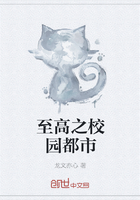"But you will not forget me? Erskine will have all but that--a tender recollection--nothing.""Can I do more than I have just promised?""Perhaps so; but I am too selfish to be able to conceive anything more generous. Our renunciation will bind us to one another as our union could never have done."They exchanged a long look. Then he took out his watch, and began to speak of the length of their journey, now nearly at an end.
When they arrived in London the first person they recognized on the platform was Mr. Jansenius.
"Ah! you got my telegram, I see," said Trefusis. "Many thanks for coming. Wait for me whilst I put this lady into a cab."When the cab was engaged, and Gertrude, with her maid, stowed within, he whispered to her hurriedly:
"In spite of all, I have a leaden pain here" (indicating his heart). "You have been brave, and I have been wise. Do not speak to me, but remember that we are friends always and deeply."He touched her hand, and turned to the cabman, directing him whither to drive. Gertrude shrank back into a corner of the vehicle as it departed. Then Trefusis, expanding his chest like a man just released from some cramping drudgery, rejoined Mr.
Jansenius.
"There goes a true woman," he said. "I have been persuading her to take the very best step open to her. I began by talking sense, like a man of honor, and kept at it for half an hour, but she would not listen to me. Then I talked romantic nonsense of the cheapest sort for five minutes, and she consented with tears in her eyes. Let us take this hansom. Hi! Belsize Avenue. Yes; you sometimes have to answer a woman according to her womanishness, just as you have to answer a fool according to his folly. Have you ever made up your mind, Jansenius, whether I am an unusually honest man, or one of the worst products of the social organization I spend all my energies in assailing--an infernal scoundrel, in short?""Now pray do not be absurd," said Mr. Jansenius. "I wonder at a man of your ability behaving and speaking as you sometimes do.""I hope a little insincerity, when meant to act as chloroform--to save a woman from feeling a wound to her vanity--is excusable.
By-the-bye, I must send a couple of telegrams from the first post-office we pass. Well, sir, I am going to marry Agatha, as Isent you word. There was only one other single man and one other virgin down at Brandon Beeches, and they are as good as engaged.
And so--
"'Jack shall have Jill, Nought shall go ill, The man shall have his mare again; And all shall be well.'"APPENDIX
LETTER TO THE AUTHOR FROM MR. SIDNEY TREFUSIS.
My Dear Sir: I find that my friends are not quite satisfied with the account you have given of them in your clever novel entitled " An Unsocial Socialist." You already understand that I consider it my duty to communicate my whole history, without reserve, to whoever may desire to be guided or warned by my experience, and that I have no sympathy whatever with the spirit in which one of the ladies concerned recently told you that her affairs were no business of yours or of the people who read your books. When you asked my permission some years ago to make use of my story, I at once said that you would be perfectly justified in giving it the fullest publicity whether I consented or not, provided only that you were careful not to falsify it for the sake of artistic effect. Now, whilst cheerfully admitting that you have done your best to fulfil that condition, I cannot help feeling that, in presenting the facts in the guise of fiction, you have, in spite of yourself, shown them in a false light. Actions described in novels are judged by a romantic system of morals as fictitious as the actions themselves. The traditional parts of this system are, as Cervantes tried to show, for the chief part, barbarous and obsolete; the modern additions are largely due to the novel readers and writers of our own century--most of them half-educated women,rebelliously slavish, superstitious, sentimental, full of the intense egotism fostered by their struggle for personal liberty, and, outside their families, with absolutely no social sentiment except love. Meanwhile, man, having fought and won his fight for this personal liberty, only to find himself a more abject slave than before, is turning with loathing from his egotist's dream of independence to the collective interests of society, with the welfare of which he now perceives his own happiness to be inextricably bound up. But man in this phase (would that all had reached it!) has not yet leisure to write or read novels. In noveldom woman still sets the moral standard, and to her the males, who are in full revolt against the acceptance of the infatuation of a pair of lovers as the highest manifestation of the social instinct, and against the restriction of the affections within the narrow circle of blood relationship, and of the political sympathies within frontiers, are to her what she calls heartless brutes. That is exactly what I have been called by readers of your novel; and that, indeed, is exactly what I am, judged by the fictitious and feminine standard of morality. Hence some critics have been able plausibly to pretend to take the book as a satire on Socialism. It may, for what I know, have been so intended by you. Whether or no, I am sorry you made a novel of my story, for the effect has been almost as if you had misrepresented me from beginning to end.















